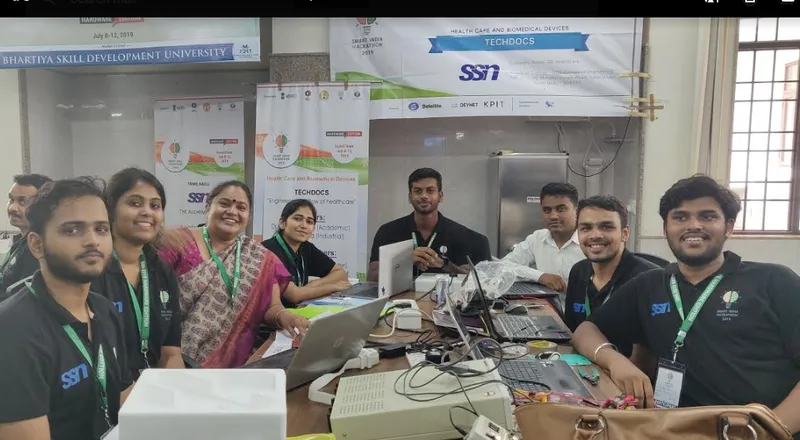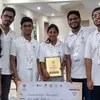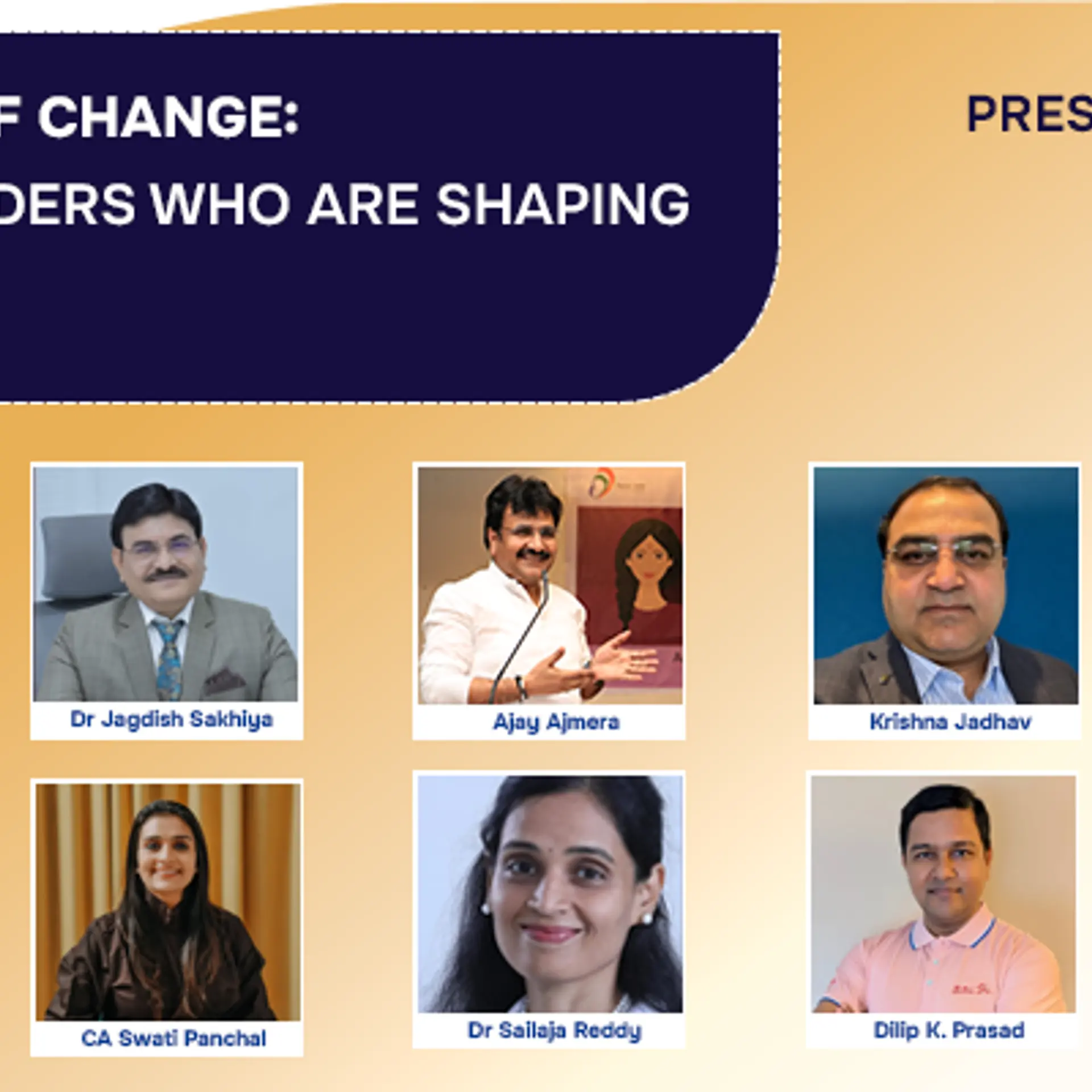Students create non-invasive cuffless devices to measure blood pressure at Smart India Hackathon
These students from two colleges in Chennai have won Rs 1 lakh each for creating two non-invasive devices to measure BP.
Unhealthy habits and poor lifestyle have increased the instances of hypertension (high blood pressure) among Indians. At present, the widespread method of measuring blood pressure (BP) is using a cuff-based device, which is considered invasive.
As part of the Smart India Hackathon 2019 hardware edition, two groups of students have presented non-invasive devices to measure BP. Team Stupendous Six and Team Techdocs presented their innovative devices under the theme ‘Healthcare and Biomedical Devices’ at Bharatiya Skill Development University, Jaipur. These teams have won Rs 1 lakh cash prize money as well.
Stupendous Six
Team Stupendous Six from Rajalakshmi Engineering College, Chennai, presented its product to measure BP using ultrasounds and the Doppler shift method.
The existing methods to identify BP are only cuff-based, which provide BP readings only at a specific instant of time. At present, sphygmomanometers are the only devices that monitor BP, which are also considered invasive.

Taking a stab at these problems, Team Stupendous Six has developed a continuous non-invasive BP monitoring system. The team found that it is an effective method to find the BP of the subjects using ultrasonic Doppler shift method.
Speaking about the use-case, Janani, a team member said, “The project will be a boon to people undergoing dialysis and also for those who require intensive care.”
A Doppler shift is when the frequency or wavelength of a dynamically moving wave changes with respect to an observer’s reference point. Using ultrasounds along with the Doppler shift method, the team was able to measure the velocity of blood in the brachial artery and subsequently calculate the BP using the same mechanism.
Bathmeshwari V (20), Sakthi Kalyani S (20), Janani R (20), Sachayanthan (20), Navaneeth Kumar (19), Jayashree K (20) came together from various departments - Biomedical Engineering, Mechatronics, and Electronics and Communication Engineering, to work on the device.
“This type of interdepartmental team was formed to make effective use of skills and develop a viable product,” Janani said.
The team faced challenges while procuring piezoceramic discs for the device, with which the change in pressure is converted into electric charge. This conversion was what helped them pin-point the blood pressure.
Stupendous Six intends to launch their product after they have completed the final version, and venture into the healthcare sector of India, which is poised to reach $280 billion by 2020.
Techdocs
Team Techdocs from SSN College of Engineering, Chennai, presented its product at the Smart India Hackathon 2019. Also a non-invasive cuffless device, it measures the BP of a patient continuously with better accuracy.

With minimal contact between the electromagnets and the patient’s skin, Techdocs’ device has a biotelemetry system so that people in rural areas who do not have access to good medical facilities can benefit from the free-range tracking facility.
Suhashine S (21), Sabharish Padmanaaban M (21), Saikiran S (21), Sriram V (21), V Varshini (20), Vishaal Venkat (21) came together to form Techdocs.
“The main field of operation of our device is in ICU to monitor the patient’s BP continuously and accurately. In order to interface our output with a display and to represent it graphically, we are using the LabView software from National Instruments,” said Vishaal Venkat, a team member.
Techdocs has already filed for a patent, and is planning to make the device a viable product, adhering to both medical and commercial standards.
To instill and foster a sense of innovation among students, the Central government started Smart India Hackathon (SIH) in 2017, and recently concluded the third SIH successfully.
YourStory brings to you some amazing young minds who have taken up the challenge to solve some of the country's problems.
(Edited by Evelyn Ratnakumar)








